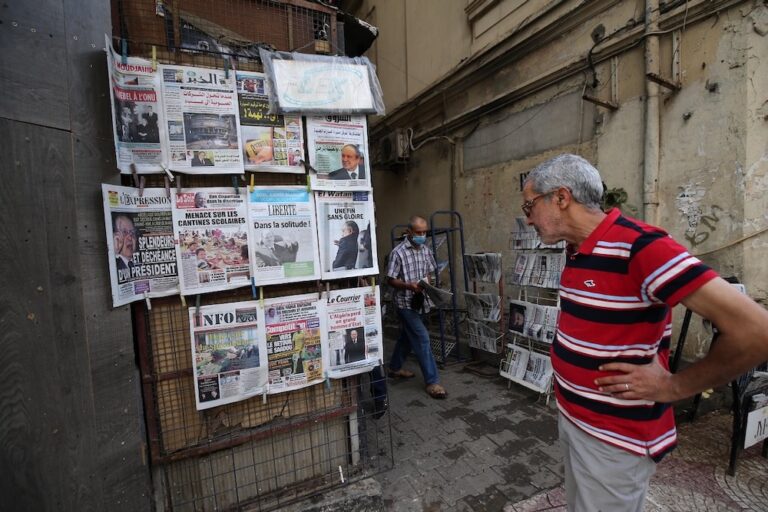While the penalty of imprisonment has been abolished in the case of media crimes, several articles of the bill still restrict freedom of expression and opinion.
(ANHRI/IFEX) – Cairo, 3 October 2011 – ANHRI is concerned about the new media bill endorsed by the Ministers Council, set to be introduced in parliament. The bill, as a whole, is considered a positive development, especially in terms of abolishing the use of prison sentences in cases of media crimes. However, extortionate fines and vague wording remain a problem, resulting in restrictions on freedom of expression.
The Algerian president had announced the decriminalisation of defamation and media disputes along with a package of political and legislative reforms following the wave of protests that reached the country, influenced by the Arab Spring. The protests which started last February demanded the lifting of the state of emergency.
Nominal liberation of the media
The bill also includes rules for establishing private news satellite channels or radio stations. Although private channels were not allowed in the past, many of the proposed terms and conditions restrict the independence of news channels, especially if applying for a proposal to establish an authority to regulate the audio-visual sector, or seeking to obtain a first license from the authorities. As for private newspapers, they require approval from the Publications Control Authority.
Press freedom still incomplete
While the penalty of imprisonment has been abolished in the case of media crimes, several articles of the bill restrict freedom of expression and opinion. Among these are extortionate fines that range from 30,000 to 500,000 Dinars (approx. 300 to 500 Euros). Moreover, the fine must be paid by the journalist, and not the institution or newspaper that he works for. It is worth noting that the average salary of a journalist is approximately 20,000 Dinars (approx. 200 Euros). Therefore, the fines present a heavy burden to journalists, and may deter them from writing on corruption cases or other controversial issues that could make them subject of a court case, and a potential fine that they cannot pay. Failure to pay the fine would result in jail time for the journalist, or the latter will have to leave the profession definitively.
The vague wording of some articles restricts press freedoms, such as the articles on maintaining public security and the requirements of state security and national defense, as well as the requirements of foreign policy, economic interests of the country, functions of public service, the constitution and the laws of the republic, the cultural and spiritual values of the nation, the national identity and national unity, etc. Such articles will allow the authorities to punish a journalist or a newspaper when they cross certain lines determined by the regime.
Additionally, the bill is quite vague when it comes to the authority entrusted with media regulation, and it makes no mention of the electronic press, although it is widespread.
“Freedom is indivisible and cannot be granted from someone to another. It is a human right for all. Hence, the Algerian authorities should not provide half-solutions in an attempt to diffuse the revolutionary spirit experienced by the Arab region. Instead, they should provide genuine and complete reform ensuring public freedoms,” stated ANHRI.


